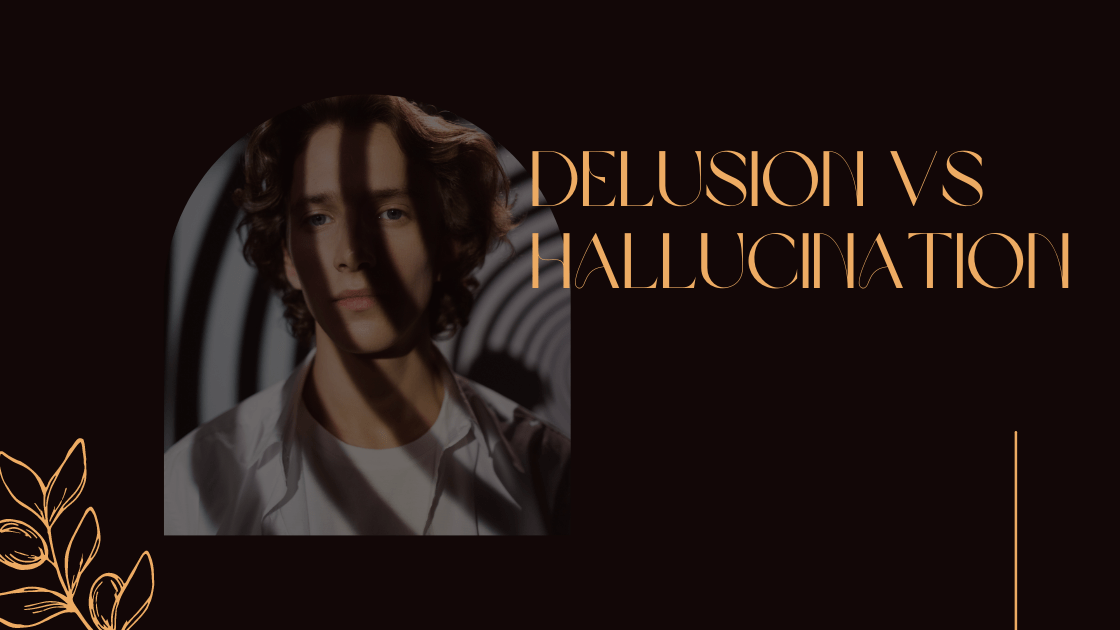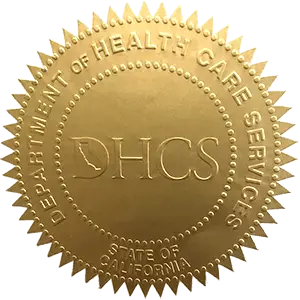When comparing delusion vs. hallucination, there are some similarities between the two and differences. Despite distinctions, these symptoms are often grouped together when discussing different conditions and mental health disorders. They can occur independently of one another or within the same mental disorder or mental illness.
What is Delusion?
Delusions are false beliefs that directly conflict with reality and can be symptomatic of a serious mental health condition.
Despite the evidence showing otherwise, when a person has delusions, they can’t let the beliefs go. A delusion may be reinforced when the person experiencing them misinterprets events.
Paranoia and delusional symptoms often occur together and are frequently part of psychotic disorders.
When a person is experiencing this symptom, their belief in it is unshakable. They continue, no matter evidence to the contrary, to hold the belief.
Some delusions are things that could happen in real life, while others are out of the realm of personality. Non-bizarre delusions could happen, although they aren’t part of external reality.
The types of delusions include:
- Erotomanic delusion: In this type, a person believes that someone is in love with them—usually someone of higher social standing, like a famous actor or actress. The person experiencing this could think the person is signaling to them secretly through movies, TV, social media, or some other medium.
- Grandiose delusions: With this type of delusional belief, someone holds the belief they’re extraordinarily powerful, wealthy, famous, or talented, even though there’s no evidence to show that’s true.
- Persecutory delusions: The delusions falling into this category could lead someone to believe they’re being mistreated somehow. For example, someone might believe they’re being drugged, followed, or spied on.
- Jealous delusions: This type of delusion is related to jealousy, including believing that a partner isn’t faithful. They might think their partner is secretly meeting someone else every time they run an errand or go to a public bathroom.
- Somatic delusions: The symptoms of a somatic delusional belief could include the belief that the individual is experiencing a body dysfunction or medical condition.
- Mixed/unspecific: If someone has untrue beliefs but doesn’t fit into any of the above categories, it could be a mixed or unspecified disorder.
The causes of delusions are primarily psychotic psychiatric disorders. Psychotic disorders tend to have a strong genetic component, so a child with a parent with schizophrenia might be more likely to develop delusional beliefs.
Neurotransmitter imbalances in the brain, as well as environmental trauma and stress, can trigger them.
People who are often isolated may be more at risk.
Conditions that are related to delusional disorders are:
- Brief psychotic disorder, which is often triggered by a stressful event and lasts for no more than a month
- Delusional disorder
- Dementia
- Mood disorders such as bipolar disorder
- Postpartum psychosis
- Parkinson’s disease
- Schizoaffective disorder
- Schizophrenia
- Drug-induced psychotic disorder
Treating Delusion
The treatment if someone is experiencing delusions depends on the underlying cause. Usually, cognitive-behavioral therapy (CBT) can help treat the symptom. When someone goes through CBT, they work with a mental health professional who helps them understand how delusions affect them. The therapist and client work to identify strategies to deal with delusions.
If delusions are related to psychosis, CBT can be paired with antipsychotic medications.
What is a Hallucination?
In a sensory experience, when someone has hallucinations, they appear real but aren’t. Someone with hallucinations can experience the changes in sensory perception related to any one of the five symptoms.
Hallucinations can be caused by mental health disorders and mental illnesses, physical illnesses, and medication side effects.
Types of hallucinations can include:
- Visual: Seeing something not there is a visual hallucination. This hallucination can include seeing visual patterns, lights, people, or objects.
- Olfactory: Related to the sense of smell, someone experiencing olfactory hallucinations could think there’s an odor when there isn’t or think they have constant body odor even when they don’t.
- Gustatory hallucinations: These hallucinations involve the sense of taste. An example is in people with epilepsy, it’s somewhat common to have a metallic taste.
- Auditory: These are the most common type of hallucination, and they may involve an individual hearing someone instructing them to do something, which can also be called a verbal hallucination. An auditory hallucination could also involve hearing noises, like footsteps, that aren’t there.
- Tactile: When someone thinks they feel something that’s not there or that there’s movement in their body, it’s considered a tactile hallucination.
The causes of hallucinations are most often mental illnesses.
- Mental illnesses that can cause hallucinations include Schizophrenia, dementia, and delirium.
- Substance use is another reason. When people use cocaine, alcohol, or a hallucinogenic drug, they may see or hear things that aren’t there.
- As people go through alcohol withdrawal symptoms, they may also experience hallucinations. This is particularly true with the severe alcohol withdrawal symptom delirium tremens.
- A lack of sleep and certain medications can cause these symptoms.
Other potential causes of hallucinations that aren’t necessarily a mental health issue are:
- Seizures
- Migraines
- Vision problems, deafness or blindness
- High fevers
- Social isolation
Treating Hallucinations
Like delusions, the particular treatment for hallucinations depends on the underlying cause. Medications and counseling may be used separately or together. The medication will depend on what’s causing the hallucinations.
The Difference Between Delusion vs. Hallucination
As you can see from what’s above, there are a number of similarities when we compare delusion vs. hallucinations.
Symptoms of psychosis can include both, and there is a lot of overlap. Both are part of altered reality.
However, there is one big difference.
One symptom is sensory-related, and the other is cognitive. Delusions are cognitive because they are false beliefs. Hallucinations, by contrast, are sensory perceptions.
The Relationship to Schizophrenia
Both delusions and hallucinations can be related to schizophrenia, a serious mental health disorder where the affected person appears to have lost touch with reality. A schizophrenia diagnosis is often made after a psychotic episode. Psychotic episodes can include delusions and hallucinations.
When someone experiences these symptoms as part of schizophrenia, they often occur along with other symptoms. These might include a flat affect, problems functioning in day-to-day life, and problems with thinking and memory.
Psychotic symptoms occur when someone loses touch with reality. They aren’t able to know what’s real and what isn’t. Hallucinations and delusions are both potential symptoms of psychosis.
Dissociative disorders can also lead to similar psychiatric symptoms.
Mental Health Treatment in Southern California
There are so many things that overlap with hallucinations and delusions. They’re often symptoms of the same disorders, including psychosis and schizophrenia. Both can represent a break from reality, and they tend to occur together, but each is a separate symptom.
The biggest differentiator is that delusions are false beliefs, and hallucinations are sense-related experiences.
It’s important that you speak to a mental health care professional no matter the underlying cause if you or someone you love is experiencing delusions, hallucinations, or both. These can be symptoms of a severe condition, but treatment is available.
To learn more about treatment options for delusion and hallucinations in Southern California, call (866) 476-2823 and talk to a care coordinator at Story Wellness.





